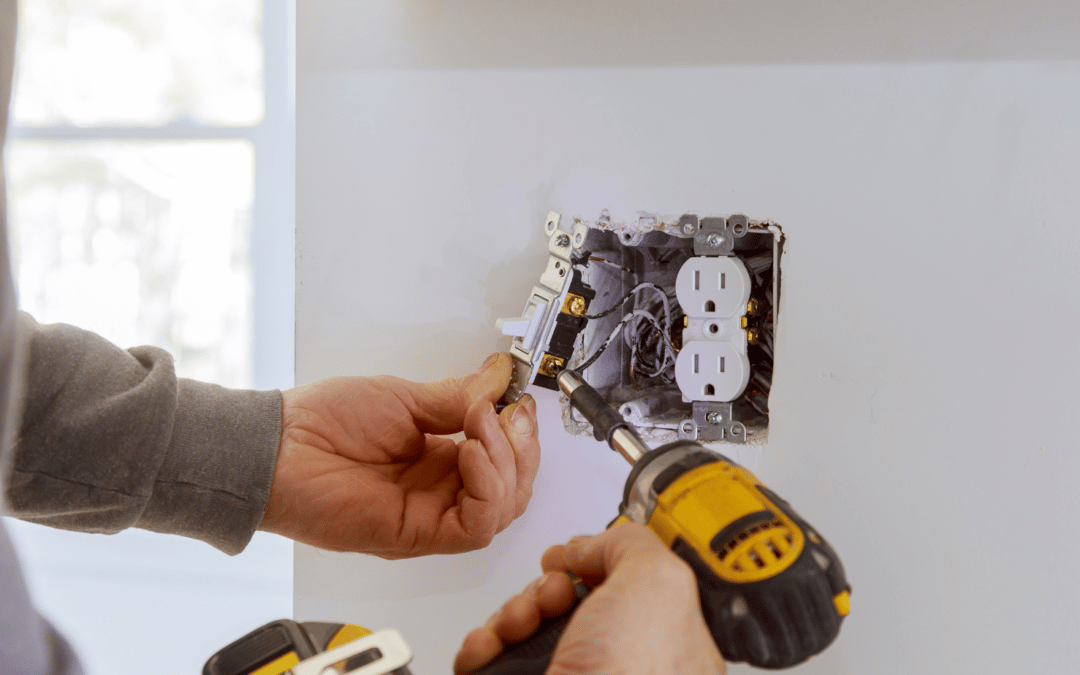Professional electricians use a variety of electrical testers to test the electronic equipment in homes. Testing devices can reveal important information about your home’s electrical system such as voltage, amperage, circuit continuity, and if there is improper wiring or shorted or open circuits. Homeowners tackling DIY electrical projects will find these common tools useful when safely performing repairs or installing equipment. Some testers are multifunctional, and some perform a single function such as testing for live voltage.
1. Non-contact voltage tester or inductance tester. This battery-operated device detects and measures voltage without touching any electrical parts. It looks like a wand that displays a red light and emits a buzzing sound when its tip senses the voltage in wires, circuit breakers, and switches. More expensive models provide an actual estimate of how much voltage is present, although it’s not precise.
2. Neon voltage tester. This device also indicates the presence of voltage but does not require a battery, making it a reliable and less expensive tool. It features a neon light bulb, two wire leads, and metal probes. When touching one probe to a hot wire or outlet slot and the other to a neutral or ground contact, the neon bulb lights up if current is present. A neon voltage tester should be handled cautiously because if users accidentally touch either of the metal probes when voltage is in the circuit, they can receive a shock.
3. Multimeter. These multifunctional tools can often measure AC and DC voltage, resistance (or ohms), continuity of circuits, capacitance, and frequency. Because of this, they can provide virtually all the information that other types of electrical testers can individually. They feature digital or analog readouts, dials for setting the test function, and two long leads with metal probes. Multimeters vary widely in quality and accuracy, however, and users will generally pay more for the best ones.
4. Solenoid voltage tester. Like the multimeter, this tool is also multifunctional for testing voltage and polarity but is somewhat simpler to use than multimeters. Some users like that the tool is rugged and has no batteries. It is less accurate than the multimeter in voltage measurement but is generally less expensive. These tools announce the presence of voltage by clicking or vibrating – the louder the sound, the higher the voltage level. They will also often trip GFCI devices or GFCI circuit breakers during testing, which provides a handy insight into the GFCI’s functionality.
5. Continuity tester. This tool is an inexpensive, battery-powered device that indicates if there is a completed circuit present. Unlike voltage testers, continuity testers are used when a circuit is turned off or on wiring or devices are disconnected from the circuit altogether. They show whether an electrical path is intact in an appliance or device. For example, they can be used to test whether a fuse is blown or whether a three-way switch is working properly. Always turn off the power or disconnect the device from the circuit when using a continuity tester because it could be dangerous if used on wiring carrying voltage.
6. Plug-in circuit analyzer. This tool is excellent for testing grounded outlets that have three slots. They have three neon lights that light up in different patterns to indicate specific test results. You can discover whether an outlet is correctly wired, reverse-wired, has an open circuit, or lacks a ground connection. Plug-in circuit analyzers do not have batteries but instead, use the power of a working outlet to perform the test.
When selecting the type of electrical tester you will use, consider the project type you’re working on. For example, if you need to know whether voltage is present, a basic non-contact or neon voltage tester will do the job well. More complex projects may require a good-quality multimeter to get all the information you need to complete your work.
Check out our blogs 5 Common Electrical Mistakes DIYers Make and What Precautions Do You Need to Take Before an Electrical Repair? to learn more about tackling DIY electrical projects.
How Can We Help?
At Shockley Electric, we address important home safety issues such as power surges, faulty electrical wiring, and potential fire hazards when we do electrical preventive maintenance in homes or commercial buildings. We are licensed, trained, and skilled in safety-proofing your home, and we are committed to the safety and well-being of our customers.
If you are experiencing electrical problems in your home or aren’t sure if your home is protected from electrical hazards, schedule an in-home estimate or appointment with us today. Fill out our form or call us now for a free estimate!

